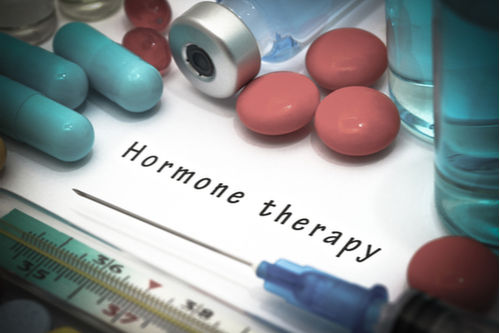- Home
- Blog
- Women Care
Can Hormone Therapy Help Treat Advanced-Stage Breast Cancer?
Women Care
Can Hormone Therapy Help Treat Advanced-Stage Breast Cancer?
By Apollo 24|7, Published on- 09 June 2022, Updated on -18 October 2022
Share this article
0
0 like

As per the World Health Organization (WHO), 2.26 million new cases of breast cancer were reported across the globe in 2020. Breast cancer, characterised by the multiplication of abnormal tumour cells in the breast, is the most common cancer found in women globally. As the disease advances, these cancer cells travel to other organs through the bloodstream or lymphatic system (which carries colourless, watery plasma). It can be extremely difficult to treat cancer at this stage. However, doctors believe that hormone therapy can help manage such aggressive breast cancer efficiently.
What is metastatic breast cancer?
Also known as advanced or stage 4 breast cancer, metastatic breast cancer refers to the stage where cancer spreads to other parts of the body. Once breast cancer spreads, it most commonly involves the bones, liver, brain, and lungs. In most cases, metastasis occurs after the recurrence of a treated cancer.
Recommended read: The Most Common Cancers Affecting Women
What are the signs of metastatic breast cancer?
The signs of metastatic breast cancer depend on the organs involved.
Signs of metastasis (spread of cancer) in bone include:
- Sudden, severe pain in bone
- Neck or back pain

- Numbness or weakness in a part of the body
- Difficulty in passing urine or faeces
Signs of metastasis in the lungs include:
- Difficulty in breathing

- Persistent cough and wheezing
- Pain in the chest
- Blood in cough and mucus
Signs of metastasis in the liver include:
- Pain in abdomen
- Loss of appetite
- Persistent fatigue
- Swelling in the legs

- Yellow pigmentation of the skin and eyes
Signs of metastasis in the brain include:
- Persistent headache

- Slurring of speech
- Changes in vision
- Difficulty in remembering things or maintaining balance
- Dizziness
- Seizures (fits)
How does hormone therapy treat metastatic breast cancer?
Hormones are chemicals that help cells and tissues complete their functions. For instance, the oestrogen hormone helps in the development of female sex organs, while progesterone maintains the menstrual cycle and pregnancy.

However, some breast cancer cells depend on these hormones for their growth. These cancer cells contain a protein called hormone receptor, which activates when the hormone attaches to them. Activated cancer cells then allow the growth of new breast cancer cells. Based on the type of receptor found in them, breast cancer cells are named as:
- ER-positive: These cancer cells contain oestrogen receptor, and therefore requires oestrogen for their growth.
- PR/ PgR positive: These cancer cells contain progesterone receptors and require progesterone for their growth.
- HR: These cancer cells contain oestrogen and/or progesterone receptor
Around 67% to 80% of breast cancers are ER-positive.
Hormone therapy restricts the growth of these hormone-dependent breast cancer cells by either blocking the production of hormones (oestrogen and progesterone) or interrupting their action on the cancer cells.
Recommended read: Can Breast Cancer Be Prevented?
What medications are used in hormone therapy to treat advanced breast cancer?
Some of the commonly used medications for hormone therapy in metastatic breast cancer include:
- Selective estrogen receptor modulators (SERMs): These drugs block the action of estrogen on the breast tissues. The most commonly used SERMs for metastatic breast cancer include tamoxifen and raloxifene.
- Fulvestrant: Fulvestrant restricts the activity of oestrogen on cancer cells and is mostly used to treat metastatic breast cancer in post-menopausal (end of periods) women.
- Aromatase inhibitors: Aromatase inhibitors help in reducing the amount of oestrogen in the body by blocking the release of aromatase, an enzyme present in fat tissues that convert androgens (another type of hormone) into oestrogen. The most commonly used aromatase inhibitors are anastrozole and letrozole. These medications are used to treat metastatic breast cancer in post-menopausal women and in those who do not benefit from SERMs.
What are the side effects of hormone therapy?
Hot flashes, dry vagina, irregular menstrual cycle, loss of appetite, nausea, headache, and bone pain are some of the common side effects of hormone therapy. Some of the less commonly experienced serious side effects of this therapy include:
- Pain in the back, joints and extremities
- Cataract
- Difficulty in breathing and persistent cough
- Increased risk of developing blood clots in the lungs and legs
- Persistent weakness and fatigue
- Loss of bone density
- Mood swings and depression
- Low sex drive (loss of libido)
- Increased risk of heart attack, angina (chest pain), and heart attack
- High risk of stroke
Hormone therapy helps in blocking the growth of cancerous cells in the breast, by restricting the release of oestrogen and progesterone. While there is no certain cure for cancer, therapies such as hormone therapy, chemotherapy, and radiotherapy can help in improving the symptoms and enhance the quality of life. Furthermore, one should understand that diagnosis of metastatic breast cancer is not a death sentence as the combination of a wide variety of treatments can help a person live a long and productive life. People with a family history of breast cancer should consult a doctor to determine their risk of developing the disease.
To book an appointment with a cancer expert
Medically reviewed by Dr Sonia Bhatt.
Services
Women Care
Leave Comment
Services
Recommended for you

Women Care
8 Steps for Woman's Personal Care Regimen
There is no shortcut to success. The same applies to skincare and hair care. Even though you apply makeup and hair styling products, the problems will pop out. So, follow a minimalistic approach to a woman’s personal care regimen. #ApolloPharmacy #WithHerAtEveryStage #Skincare #HairCare #PersonalCareRegimen

Women Care
Dear Women, This Is Exactly Why You Can’t Go Low On Potassium!
This article focuses on determining the daily requirements for potassium in women and the negative effects of taking too much or too little of it.

Women Care
Testing Pregnancy At Home? Here’s Everything About Pregnancy Test Kits
Pregnancy test kits primarily look for traces of hCG in your body. The reactive paper changes its colour on detecting a high composition of this chemical. Make sure that you follow all the required steps carefully while taking this test.
Subscribe
Sign up for our free Health Library Daily Newsletter
Get doctor-approved health tips, news, and more.

